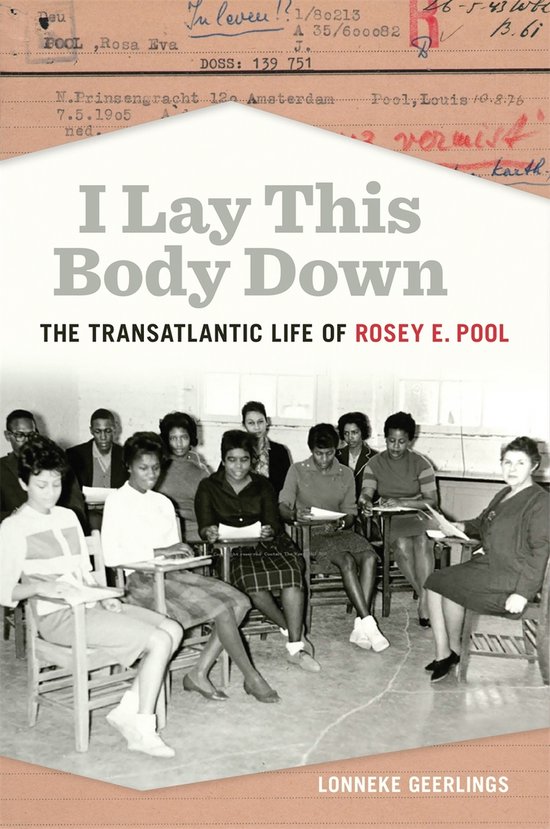
Politics and Culture in the Twentieth-Century South Series- I Lay This Body Down
Rosey E. Pool did not live an ordinary life. Among other things, she witnessed the rise of the Nazis in Berlin, tutored Anne Frank, operated in a Jewish resistance group, published African American poets in Europe, and took part in the American civil rights movement. I Lay This Body Down is the first study of Pool and her remarkable life.
Rosey E. Pool (1905–71) did not live an ordinary life. She witnessed the rise of the Nazis in Berlin firsthand, tutored Anne Frank, operated in a Jewish resistance group, escaped from a Nazi transit camp, published African American poets in Europe, operated a London "salon" with her partner, witnessed independence movements in Nigeria and Senegal, and took part in the American civil rights movement. I Lay This Body Down is the first study of Pool and her remarkable transatlantic life.
A translator, educator, and anthologist of African American poetry, Pool corresponded, after World War II, with Langston Hughes, W. E. B. Du Bois, Naomi Long Madgett, Owen Dodson, Gordon Heath, and others who fostered her involvement in the Black Arts Movement, both in Britain and the United States. Though Pool was often cast as an outsider—one poet was amazed that "one so removed" was interested in the Black cause—she saw herself as part of a transatlantic struggle against oppression. For Pool, the "yellow Jew stars" the Nazis forced her to wear "were our darker skins."
Rosey E. Pool’s life allows Lonneke Geerlings to explore intersections of European and American history. As a Holocaust survivor and activist fighting against segregation in the Deep South, Pool connects stories that are often studied and told in isolation. Her life helps us understand the intersecting histories of Jewish Europe and Black America, but it also allows us to see how Pool dealt with tragedy, trauma, and loss. At its core, this book is about resilience and hope. Indeed, Pool’s life illuminates the power of reinvention for dealing with both challenging personal circumstances and the traumas of global history.
Rosey E. Pool (1905–71) did not live an ordinary life. She witnessed the rise of the Nazis in Berlin firsthand, tutored Anne Frank, operated in a Jewish resistance group, escaped from a Nazi transit camp, published African American poets in Europe, operated a London "salon" with her partner, witnessed independence movements in Nigeria and Senegal, and took part in the American civil rights movement. I Lay This Body Down is the first study of Pool and her remarkable transatlantic life.
A translator, educator, and anthologist of African American poetry, Pool corresponded, after World War II, with Langston Hughes, W. E. B. Du Bois, Naomi Long Madgett, Owen Dodson, Gordon Heath, and others who fostered her involvement in the Black Arts Movement, both in Britain and the United States. Though Pool was often cast as an outsider—one poet was amazed that "one so removed" was interested in the Black cause—she saw herself as part of a transatlantic struggle against oppression. For Pool, the "yellow Jew stars" the Nazis forced her to wear "were our darker skins."
Rosey E. Pool’s life allows Lonneke Geerlings to explore intersections of European and American history. As a Holocaust survivor and activist fighting against segregation in the Deep South, Pool connects stories that are often studied and told in isolation. Her life helps us understand the intersecting histories of Jewish Europe and Black America, but it also allows us to see how Pool dealt with tragedy, trauma, and loss. At its core, this book is about resilience and hope. Indeed, Pool’s life illuminates the power of reinvention for dealing with both challenging personal circumstances and the traumas of global history.
| Auteur | | Lonneke Geerlings |
| Taal | | Engels |
| Type | | Hardcover |
| Categorie | | Mens & Maatschappij |